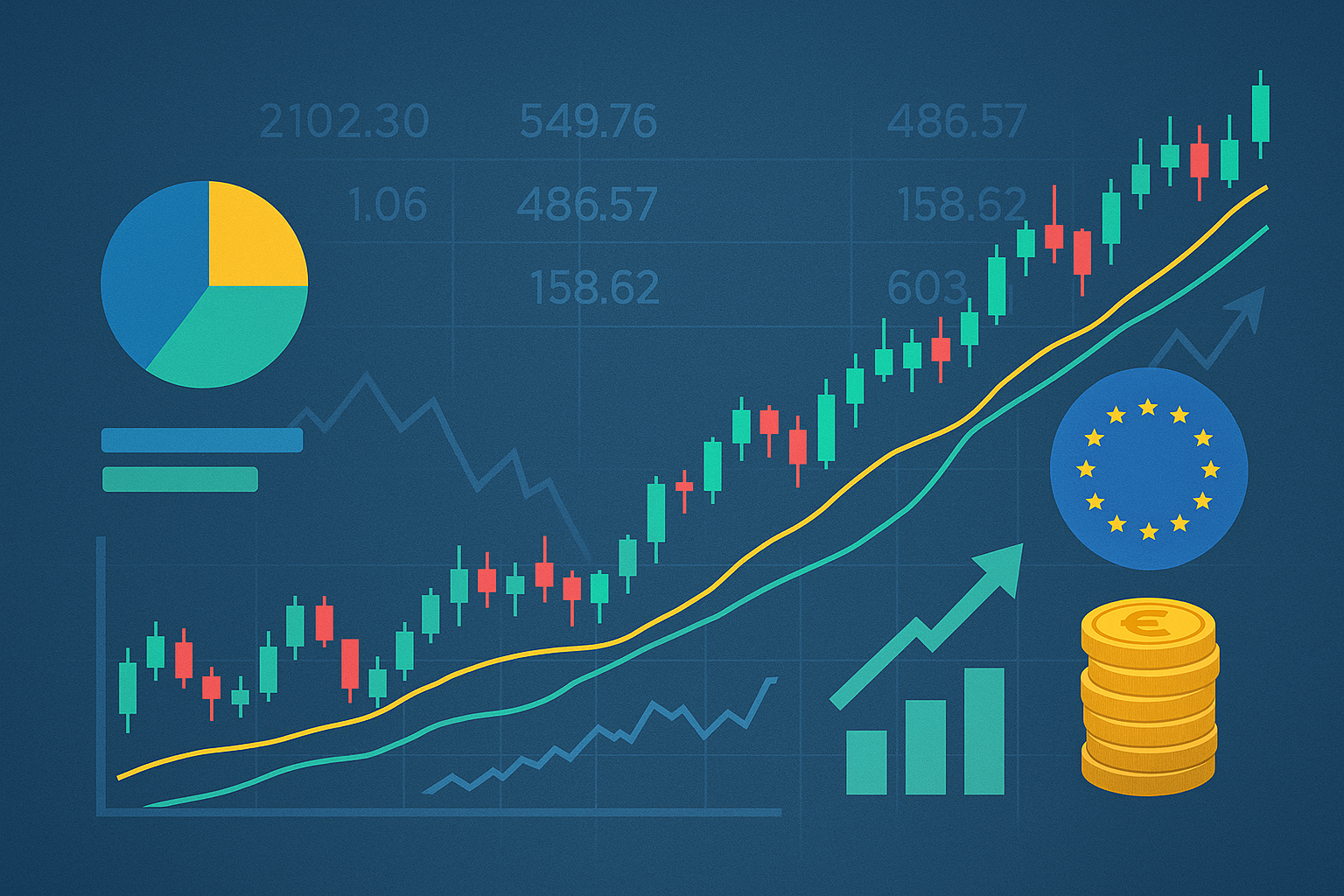Introduction
European stock markets recorded modest gains today, reflecting a mix of investor optimism stemming from encouraging corporate earnings and easing concerns over global trade conflicts. As major indices climbed, investors showed renewed confidence in the European economic outlook, underpinned by a stabilizing geopolitical environment and improving financial fundamentals.
The rise in stock prices across Europe today was characterized by gains in key sectors including technology, industrials, and consumer discretionary. Analysts attribute this positive momentum to several factors, including a more favorable earnings season, improving macroeconomic indicators, and a temporary alleviation of fears surrounding trade tensions that have previously weighed on investor sentiment.
Positive Earnings Reports Drive Market Confidence
Corporate earnings announcements played a pivotal role in bolstering investor confidence in European markets. Several multinational companies exceeded market expectations, delivering higher-than-forecasted revenue and profit figures. The robust performance was particularly evident in the technology and industrial sectors, where companies reported increased orders, stronger demand, and better-than-expected operational efficiency.
Investors responded positively to these reports, interpreting them as a signal that corporate Europe remains resilient despite broader global economic uncertainties. The combination of healthy earnings and optimistic forward guidance from companies helped reduce market volatility and supported the gradual upward trend in share prices.
Easing Global Trade Tensions Provide Relief
Another contributing factor to the modest market gains today is the easing of global trade concerns. Over the past year, European investors have been navigating a challenging trade environment, marked by disputes between major economies and fluctuations in tariffs that affected international supply chains.
Recent developments, however, indicate a potential thaw in trade relations, particularly between key European trade partners and major global economies. This has provided a measure of reassurance to investors, who view reduced trade friction as beneficial for multinational corporations operating in Europe. Analysts suggest that continued dialogue and negotiation among global trade powers could further stabilize investor sentiment and sustain market gains in the coming weeks.
Sector Performance Highlights
European stock indices today showed varied performance across different sectors. The technology sector experienced notable gains, driven by strong earnings reports and positive outlooks from leading tech companies. Industrial stocks also rallied, supported by rising demand for machinery, infrastructure development, and increased exports to emerging markets.
Consumer discretionary stocks performed moderately well, as retail and luxury goods companies reported improved sales figures and stronger margins. Financial services, energy, and healthcare sectors saw mixed performance, reflecting ongoing macroeconomic concerns and sector-specific challenges. Overall, the breadth of gains indicates a balanced market response, with both growth and value stocks contributing to the upward momentum.
Investor Sentiment And Market Psychology
Market analysts highlight the importance of investor sentiment in driving the modest gains observed today. After periods of heightened uncertainty, even small positive signals such as strong earnings or a pause in trade tensions can significantly influence buying behavior.
European investors appear cautiously optimistic, favoring sectors with tangible growth prospects and solid earnings fundamentals. The gradual improvement in investor confidence is reflected in increased trading volumes and modest reductions in market volatility indices. Despite this optimism, analysts caution that markets remain sensitive to geopolitical developments, central bank policy announcements, and macroeconomic data releases.
Geopolitical Factors And Economic Indicators
While corporate earnings and trade optimism have supported European stocks, broader geopolitical and economic factors continue to play a critical role. Inflation data, central bank policy, and fiscal measures across major European economies influence market dynamics and investor expectations.
The European Central Bank’s monetary policy stance, for example, remains a key driver of market sentiment. Investors closely monitor policy signals related to interest rates, liquidity provision, and inflation management. Similarly, fiscal measures by national governments, including stimulus initiatives or regulatory changes, can impact sector performance and overall market direction.
Future Outlook For European Markets
Looking ahead, analysts anticipate that European markets may continue to experience moderate gains, provided that corporate earnings remain strong and global trade tensions do not escalate. Market participants are likely to remain focused on key economic indicators such as GDP growth, employment trends, and consumer confidence metrics, which will shape expectations for corporate profitability and sectoral performance.
Investors may also pay attention to developments in global energy markets, currency fluctuations, and geopolitical events that could influence European market dynamics. While uncertainty remains a factor, the current trend of modest gains suggests a cautiously optimistic environment for equities in the region.
Conclusion
European stock markets today demonstrated resilience, recording modest gains supported by positive earnings reports and easing concerns over global trade conflicts. The combination of corporate profitability, sector-specific performance, and improved investor sentiment has contributed to a stable market environment.
While risks remain, particularly in relation to geopolitical developments and macroeconomic fluctuations, the current trajectory indicates a cautious but positive outlook for European equities. Investors are advised to monitor earnings announcements, economic indicators, and trade negotiations closely, as these factors will continue to shape market performance in the near term.

